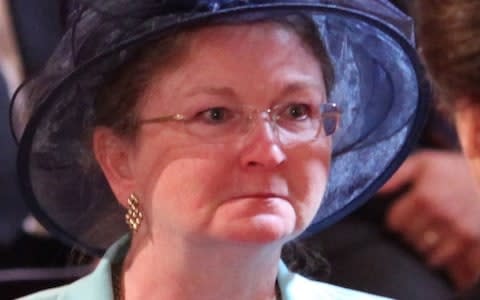Vice-chancellor pay should be linked to university size, head of the new regulatory body says

Vice-chancellor pay should be linked to the size of a university, the head of the new regulatory body has said.
Appearing before the education select committee, Nicola Dandridge, chief executive of the Office for Students (OFS) hinted that the new watchdog will crack down on heads who who receive large pay packets while presiding over small universities.
She told MPs that the pay packets of university heads should also be linked to their institution's performance.
Asked by the Robert Halfon MP, the committee chair, whether salaries of senior executives should be linked to performance Ms Dandridge said “yes, and also linked to the size of the organisation you are running”.
She added: “I mean some are huge, billion pound, international operations and some of them have far less responsibility.”
Her comments follow widespread criticism of vice-Chancellor salaries, including Professor Christina Slade, who retired in August after five years in the post. With just over 7,000 students last academic year, Bath Spa is one of the smallest universities in the country.
Prof Christina received £808,000 in her final year as vice-Chancellor of Bath Spa University, which included a sum of £429,000 in "compensation for loss of office" on top of her £250,000 salary, £89,000 of pension contributions, £20,000 of housing allowance and "other benefits-in-kind" worth £20,000.

The country’s highest-paid vice-Chancellor, Dame Glynis Breakwell, announced she will be stepping down next year amid pressure from her own staff over her salary.
Dame Glynis is paid £468,000 a year to head up the neighbouring Bath University, which was established 50 years ago and had just over 13,000 full time students last year.
Oxford bursar David Palfreyman, of New College, has previously said that universities must put an end to the “gravy train” of “grossly excessive salaries” enjoyed by senior leaders.
Jo Johnson, the universities minister, has spoken out against the "upwards rachet" of salaries, and said that any member of a university’s senior leadership team with salaries over £150,000 will have to justify their salary to the OFS or face a fine.
Ms Dandridge told MPs there is a "sense that some senior salaries have got out of kilter” adding that there is a “legitimate public concern about the levels of some of the salaries”.
She said that the OFS, which will come into force on January 1, 2018, will take the issues of excessive vice-Chancellor salaries “very seriously”.
“If they pay can’t be justified then we will expect, we will have to get into a discussion about what happens next, but we have a whole array of tools and responses available to us to deal with it,” she said.
“Having said all of that, universities are autonomous and we have to respect that. And I think it is really critical that they try to sort this out themselves.”

 Yahoo News
Yahoo News 